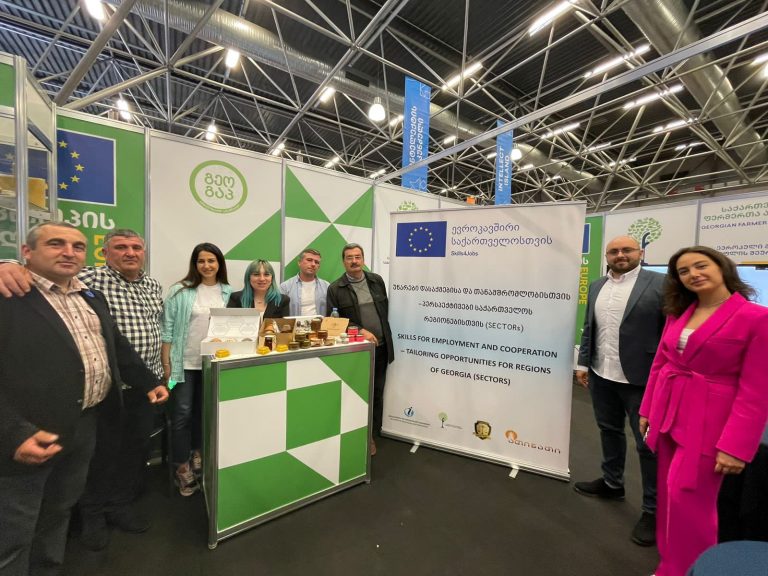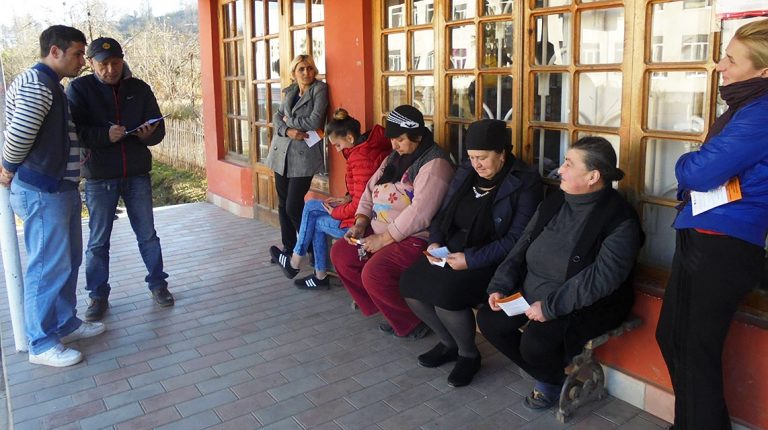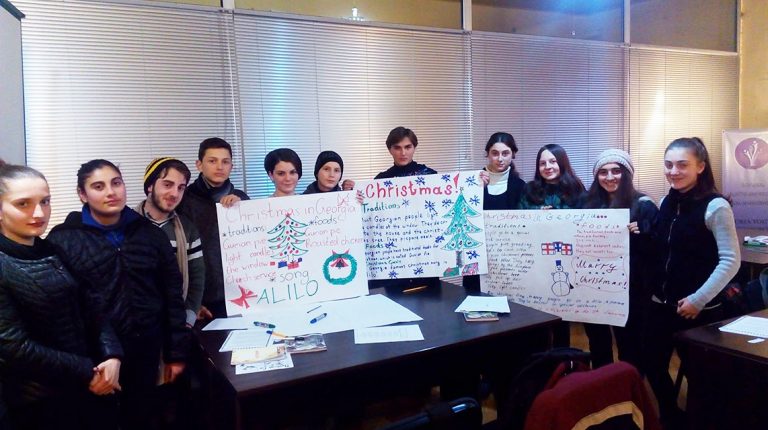Implementation period: 2015 July – 2017 October.
Implementing organization: PH International Georgia
Implementation period: 2015 July – 2017 October.
Implementing organization: PH International Georgia
Donord: United States Agency for International Development (USAID).
Geographical coverage: 20% of secondary schools (480 schools) throughout the country.
Partner: Center for Training and Consultancy (CTC), Civic Education Teachers’s Forum and 10 regional partner organizations, Guria Youth Resource Center is one of them.
PH works with a support of the Ministry of Education and Science of Georgia.
Program goals:
The purpose of Momavlis Taoba Program (MT) is to :
- promote greater civic engagement of young people;
- enhance civil society’s role in promoting transparent and accountable governance at the national and local levels by expanding and institutionalizing secondary school civics education curricula and practical applications;
- imrpove civic education training curricula at schools and promote greater civic engagement of young people;
- enhance civil society’s role in promoting transparent and accountable governance at the national and local levels by expanding and institutionalizing secondary school civics education curricula and practical application.
Program activities that include:
- working with 25 schools across Guria regions to engage teachers, students, and communities as partners in civic education and practice;
- updating and delivering a modern teacher training course for civics teachers from project schools to assist them in better meeting civics curriculum goals for students grade 9-12, with particular emphasis on reaching curriculum goals for mandatory civic education in grades 9 and 10;
- delivering supplemental textbooks to teachers and students in the 25 treatment schools;
- working with the Civics Teachers Forum to provide a sustainable system of supportive resources to civics teachers through an interactive website, peer skills development using critical friends and open lesson approaches as well as teacher blogging, regional civics resource libraries, mentoring, and annual professional recognition awards;
- introducing varied approaches that encourage and support students from participating schools in applying their civics lessons into practice in their schools and communities, as well as mini-grant support for student-created projects;
- facilitating and supporting multiple local, regional and national activities including competitions, youth forums, volunteer opportunities, social media camps, and other programs that further stimulate and reward civic engagement of youth.







